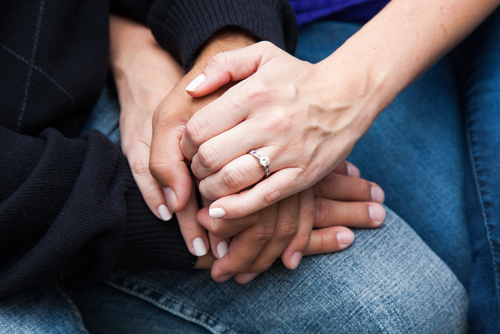Hemophilia B Affects Relationships of Adults and Children, U.S. Study Finds

Mild to moderate hemophilia B affects the relationships of adult patients, children with the disease and their caregivers in aspects such as telling others about the diagnosis, selecting a partner, and feeling bullied, according to an American study.
The research, “Mild-severe hemophilia B impacts relationships of US adults and children with hemophilia B and their families: results from the B-HERO-S study,” appeared in the journal Patient related Outcome Measures.
Results of another study, called HERO, mostly including hemophilia A patients, showed a significant impact of the disorder on satisfaction in relationships. However, this study underrepresented patients with hemophilia B and those with mild to moderate disease.
The B-HERO-S (NCT02568202) study was designed to assess health-related quality of life, sexual health, relationships, and other aspects that could help identify challenges to patients with hemophilia B. It included a significant proportion of female patients and female caregivers who are genetic carriers.
Between September and November 2015, 299 adults (median age 29 years; 213 men) and 150 caregivers of affected children (35 years; 116 women) completed separate online surveys on the impact of hemophilia on relationships with their families and other groups.
Most (88%) of the adult patients had mild to moderate disease. Also, 54% were married or in a long-term relationship, while 44% were single.
In contrast to only 36% in the HERO study, most patients (87%) responded that hemophilia affected their ability to form close relationships with partners or prospective partners. In turn, 56% were worried about this impact in future years, while 45% reported they were worried about being able to support a family and 42% feared the partner’s/prospective partner’s reaction if they disclosed their hemophilia.
Almost all patients (98%) were very or quite satisfied with the support received from their current partner, for reasons such as “providing financial security” (45%) and “my partner really cares about me” (39%). However, only 56% had a similar level of satisfaction regarding a previous partner. The experiences and degree of support received previously affected the decision to start new relationships in 90% of the respondents.
“This suggests that based on prior negative experiences, people with hemophilia may seek partners who are more supportive of their hemophilia, thereby leading to a high rate of satisfaction with support from current partners,” the researchers stated.
A vast majority were very/quite satisfied with the support from family (87%), friends (96%), colleagues at work or school (87%), and an employer or manager (90%). Yet, most participants had had a negative reaction or experience when disclosing their hemophilia to a friend (76%), a colleague (80%), or an employer (86%). Most also felt bullied by peers (69%) or colleagues (66%) because of the disease.
The majority of the patients also reported that disclosing their disease affected relationships with friends and colleagues. Prior negative experiences influenced when, how, and to whom to disclose.
Most also said that either a select few or most of their contacts knew about their disease, including friends (66%), colleagues (74%), employers/managers (72%), and neighbors (74%).
As for the caregivers, 74% cared for children with mild to moderate hemophilia. Most (89%) were married or in a long-term relationship. As for the impact of their child’s hemophilia on unaffected siblings, most reported either no impact (27%) or mixed positive/negative impact (49%).
Reasons for a negative impact on siblings included not receiving as much time as the affected child (45%) and not being able to do what they want to do (39%). In contrast, the positive impact was reflected in closer relationships (52%), being mature because of the sibling’s disease (41%), and learning to share more easily (41%).
Most caregivers were very or quite supported by partner (98%) and family (92%). Most were also very or quite satisfied with the support of teachers (94%), children at school (80%), and other adults (72%).
Among caregivers dissatisfied with their support, the majority said that adults in regular contact were overprotective (59%) and do not know enough about hemophilia (56%). All responded that teachers do not know enough about the disease, while 73% reported that other children at school are also overprotective.
As for telling others, most caregivers had negative experiences when disclosing (76%) or having their child disclose (69%) the disease to a friend. The data further revealed that 43% of the caregivers reported that their child had been bullied because of his/her hemophilia.
Also, most caregivers said that either a select few or most of their contacts knew about their child’s disease, including the child’s friends (54%), children at school (60%), teachers (53%), and neighbors (68%).
“These data suggest that mild to moderate hemophilia B significantly affects the relationships of both males and females with hemophilia, children with hemophilia, and their caregivers,” the scientists said.






